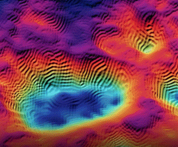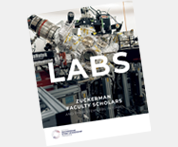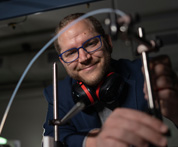Dr. Lee Shaashua Berger is driven by a motivation to understand and provide better cures for cancer. Her PhD at Tel-Aviv University in Psychobiology found that extensive surgical procedures, which are often necessary for primary tumor removal, can unleash metastatic foci from their dependence on primary tumor secretome, enabling the cancer to spread. This deleterious effect of surgery was shown by Dr. Shaashua Berger to be prevented by a combined use of a beta-adrenergic blocker and a COX2 inhibitor. She believes the perioperative period, although commonly overlooked, is crucial for determining long-term cancer outcomes.
After her PhD, Dr. Shaashua Berger was appointed to a postdoc at Weizmann Institute of Science, where she shifted her focus to pancreatic cancer, one of the most lethal forms of cancer. In this study, Lee found that cancer cells bearing BRCA mutations rewire the stroma (non-cancerous cells in the tumor microenvironment) in different ways than BRCA WT cancer cells.
For her next postdoc, at Weill Cornell Medicine, Dr. Shaashua Berger will study pancreatic cancer exosomes. Her goal is to detect and analyze tumor features in pancreatic cancer noninvasively over time. To date, assessment has been performed using imaging methods (CT, MRI, or PET scanning) or analysis of tumor biopsies. However, these techniques can be expensive and invasive, and they are able to represent the disease status at only a single point in time.
Dr. Shaashua Berger uses liquid biopsies (blood tests) to assess exosome composition in pancreatic cancer patients at diagnosis, during treatment, and following treatment. Exosomes are nanovesicles that contain a wealth of tumor-derived information. They are shed from cancers into the blood stream and can be readily isolated from the peripheral circulation.
The prospect of detecting and analyzing tumor features throughout a patient’s course of treatment opens a new door to studying pancreatic tumor biology, monitoring and evaluating treatment response, and developing innovative, more effective therapies for this challenging cancer.
 ISRAELI COUNCIL FOR HIGHER EDUCATION
ISRAELI COUNCIL FOR HIGHER EDUCATION MIT-Israel Zuckerman STEM Fund for Faculty Collaboration
MIT-Israel Zuckerman STEM Fund for Faculty Collaboration The Zuckerman Travel and Research STEM Fund at Harvard
The Zuckerman Travel and Research STEM Fund at Harvard Zuckerman AI Fund at Technion
Zuckerman AI Fund at Technion Alan Alda Communicating Science
Alan Alda Communicating Science Zuckerman Institute – ScienceAbroad
Zuckerman Institute – ScienceAbroad Zuckerman Institute – America-Israel Friendship League partnership
Zuckerman Institute – America-Israel Friendship League partnership


























